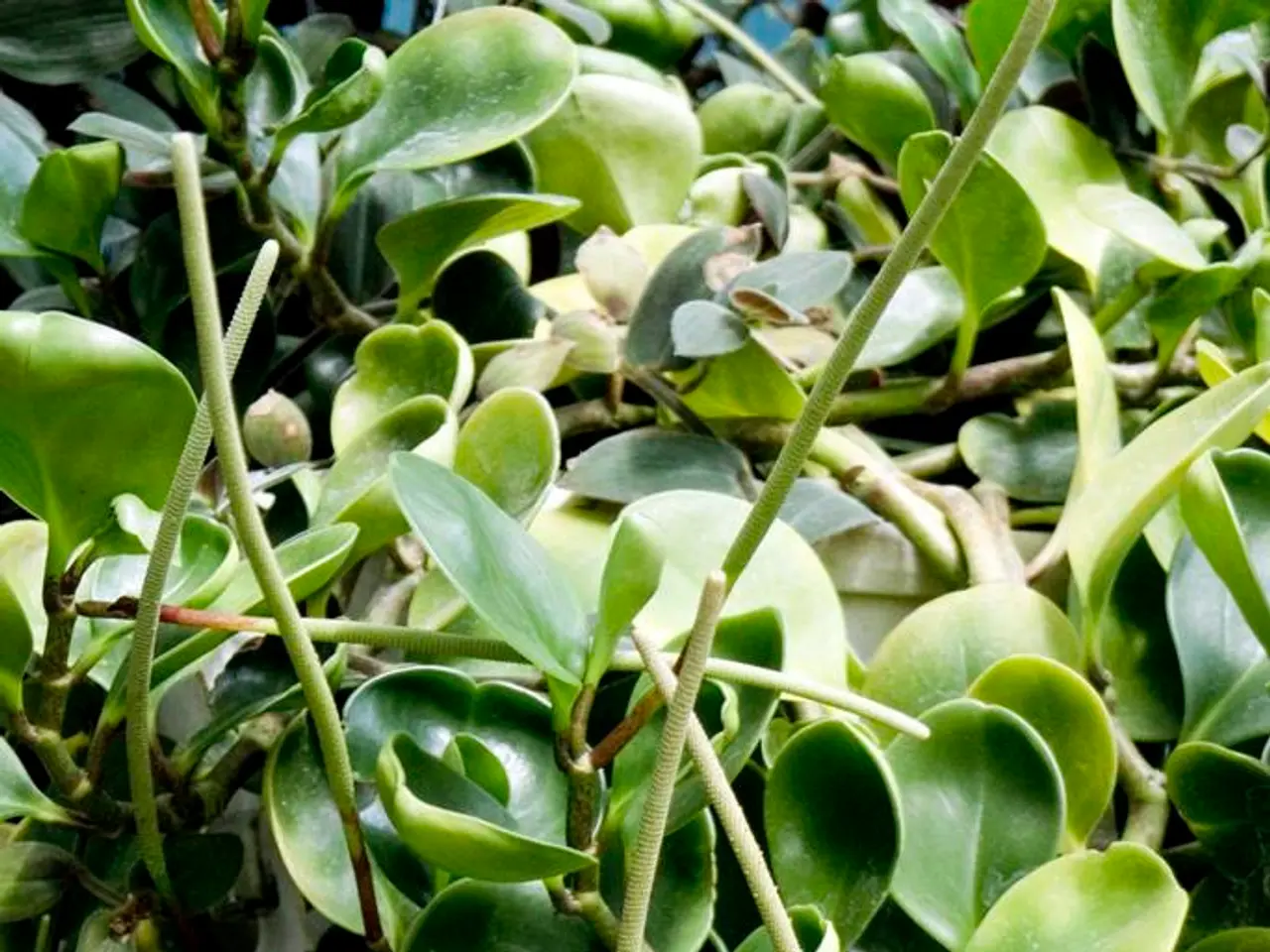Methods to Reduce Water Usage in Your Lawn and Flower Beds
Sustainable Gardening: Tips for Water Conservation and Efficient Use
In the pursuit of a beautiful and eco-friendly garden, water conservation is key. Here are some practical tips to help you make the most of your water resources while nurturing your plants.
1. Embrace Native Plants
Native plants, which have adapted to local climates, are more water-efficient than exotic plants. Their unique adaptations, such as sparse and recessed stomata, aromatic oils on leaves, and different leaf types for wet and dry periods, allow them to thrive with much less supplemental watering compared to exotic species [1].
By incorporating native plants into your garden, you can enjoy the benefits of water conservation, low maintenance, environmental protection, and ecosystem resilience [2][3].
2. Smart Irrigation Systems
An automatic rain-shutoff mechanism can be a valuable addition to your irrigation system. This feature helps control the amount of water entering the system and prevents over-watering [4].
3. Plant Wisely
Planting perennials is a wise choice as they require less frequent watering compared to annuals, thanks to their deeper root systems [5]. Avoid planting thirsty plants in porous planters like unglazed terracotta pots, as they lose moisture quickly [6].
4. Garden Maintenance
Regular garden maintenance is crucial to prevent leaks and ensure efficient water usage. Leaks in hoses, outdoor faucets, and garden tools can waste over 6,000 gallons of water per year and should be promptly repaired [7].
5. Water Management Techniques
Grouping hardy plants together can help maximise water consumption and reduce waste. Different planter materials interact with heat differently, affecting moisture retention. Glazed pots are suitable for gardens exposed to hot, dry environments as they help retain moisture, while coarse mulch is recommended over fine mulches as the materials allow water to seep into the ground [8].
6. Water Recycling
Re-using water from aquarium, laundry, bath, vegetable washing, or dish washing is beneficial for gardens. Installing a spigot near the collected rainwater container can make it easier to disperse the water to the garden [9].
7. Soil Amendments
Improving soil's ability to hold more moisture can be achieved by amending it with organic compost. Mulching the soil with compost or mulching materials can help retain soil moisture, reducing water evaporation and promoting healthy plant growth [10].
8. Barrels and Containers
Collecting rainwater in barrels, rain barrels, or large food-grade plastic containers is an easy and convenient way to water gardens. Covering the collected rainwater barrel is important to prevent contamination [11].
By implementing these tips, you can create a garden that is not only beautiful but also sustainable, conserving water, reducing maintenance efforts, protecting local environments, and supporting native wildlife.
[1] University of California, Berkeley. (2021). Water-saving plants. [online] Available at: https://ucanr.edu/sites/wateruseitwisely/files/300880.pdf
[2] The Nature Conservancy. (2021). Plant native. [online] Available at: https://www.nature.org/en-us/get-involved/how-to-help/plant-native/
[3] National Wildlife Federation. (2021). Native plants. [online] Available at: https://www.nwf.org/Garden-for-Wildlife/Native-Plants
[4] California Native Plant Society. (2021). Water-wise gardening. [online] Available at: https://www.cnps.org/plants/gardening/water-wise-gardening
[5] The University of Texas at Austin. (2021). Water-wise gardening. [online] Available at: https://aggie-horticulture.tamu.edu/gardening/water-wise-gardening/
[6] The University of Georgia. (2021). Water conservation in the landscape. [online] Available at: https://extension.uga.edu/publications/detail.html?number=C1646
[7] The University of Vermont. (2021). Water conservation tips. [online] Available at: https://extension.umd.edu/hgic/water-conservation-tips
[8] The University of California, Davis. (2021). Water conservation in the garden. [online] Available at: https://cesl.ucdavis.edu/files/111210.pdf
[9] The University of Missouri Extension. (2021). Water-wise landscaping. [online] Available at: https://extension.missouri.edu/publications/G2355
[10] The University of Massachusetts Amherst. (2021). Gardening for water conservation. [online] Available at: https://extension.umass.edu/landscape/lawn-garden/gardening-for-water-conservation
[11] The University of Illinois Extension. (2021). Rain barrels. [online] Available at: https://web.extension.illinois.edu/cfivtw/rain-barrels/
1. When choosing plants for your garden, opt for native environmental-science species, which have adapted to local climates and are more efficient at water usage.2. To optimize irrigation, consider installing a smart system equipped with a rain-shutoff mechanism that automatically controls the amount of water used.3. For a sustainable lifestyle, plant perennials instead of annuals, as they have deeper root systems and require less frequent watering, making water-home-and-garden conservation easier.




